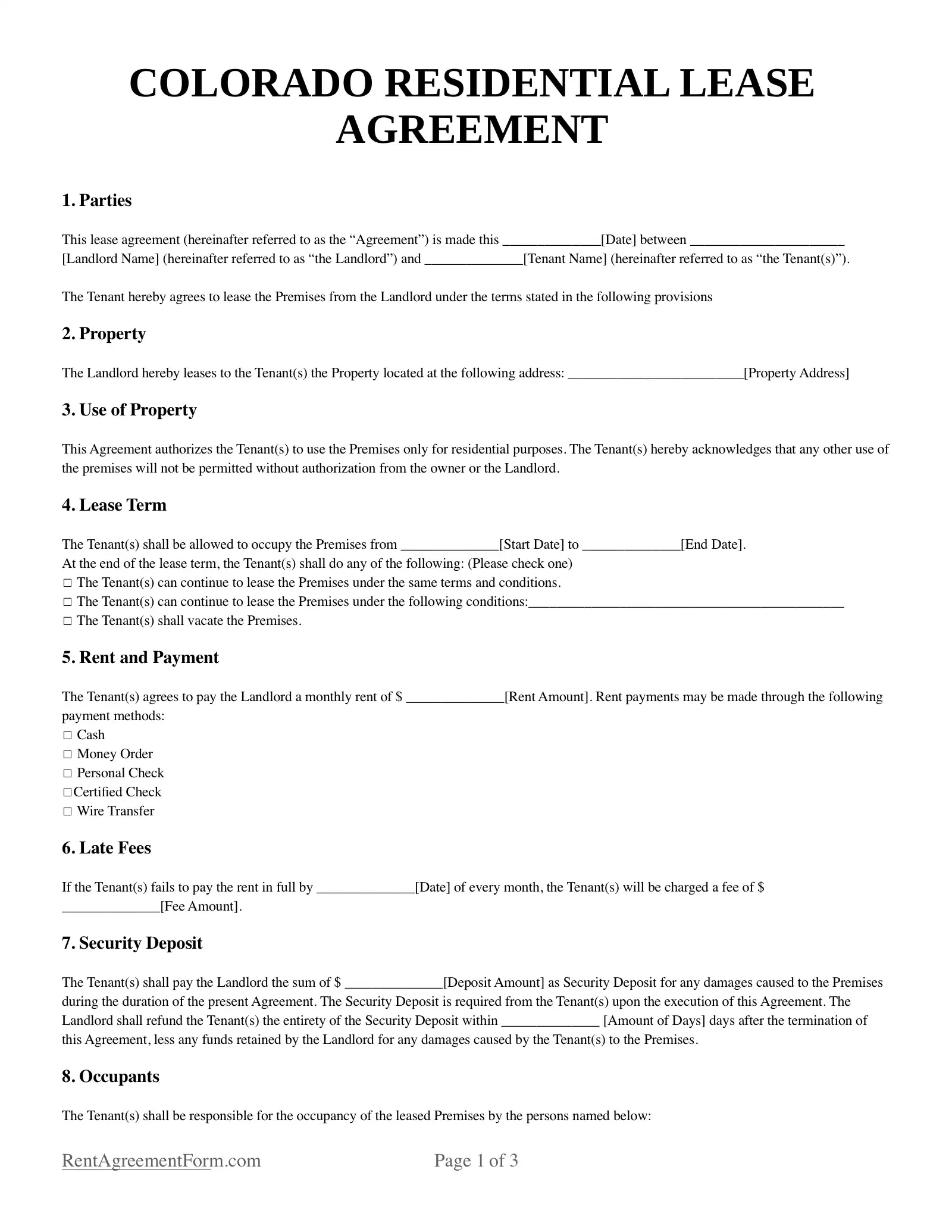Colorado Residential Lease Agreement Form
With its focus on health, Colorado is a great place to live with numerous outdoor activities and nutritious food options. If you’ve been thinking of getting a rental in the Centennial State, you’ll have to learn about the Colorado Residential Agreement Form. The document details the terms and conditions of how a tenant can use property in exchange for monthly rent.
Before signing a lease agreement, the prospective tenant has to submit a Colorado rental application form. This simple form allows the landlord to perform a background check on the applicant to evaluate their credit and employment history. If the application is approved, the landlord and tenant will then negotiate the provisions of the lease.
A standard lease outlines the rent amount and due date. It also enumerates the obligations of the landlord and tenant. The landlord is responsible for ensuring that every room of the rental property is safe and habitable. They will also list all disclosures required by law.
On the tenant's side, the tenant must ensure that they use the property and remit payments according to the stipulated conditions. The lease will also note all property occupants, including pets if there are any.

Required Disclosures
- Lead-Based Paint Disclosure - The U.S. banned lead-based paint in buildings in 1978. So, if the property was built before 1978, the landlord must inform the tenant about it. The landlord must also provide the tenant with educational materials about lead hazards (EPA Regulation)
- Mold and Other Defects - The landlord is obliged to inform the tenant of any structural damage and mold infestation on the property. If there are mold issues, the landlord has to give the tenant pamphlets on how to deal with mold issues.
- Utility Disclosure - Tenants must be informed about a property’s utilities, such as its mechanical services and the quality of the water source. Landlords should also share information about sewers and flooding issues (if any).
Rent Grace Period
There is a seven-day grace period in Colorado. This means that the landlord has to wait seven days from the time the rent is due before charging a late fee. Colorado implements a cap on the maximum late fee that landlords can charge. It must be no greater than $50 or 5% of the past due rent, whichever is higher. However, landlords can only charge a late fee if it has been stipulated in the lease agreement.
Security Deposits
In Colorado, landlords are not required to collect security deposits though most do. The security deposit gives landlords peace of mind during the termination of the lease. The security deposit can cover the cost of damage to the property when the tenant moves out. The landlord can also withhold the security deposit or part of it in case the tenant fails to pay rent.
If there is no cause to withhold the security deposit, the landlord has a month to return the money to the tenant after the tenant moves out. This period can be extended to 60 days but it should never be longer than that. However, if the tenant was forced to vacate because of hazardous conditions, the landlord only has 72 hours to return the deposit (CO Rev Stat § 38-12-103 (2020)).